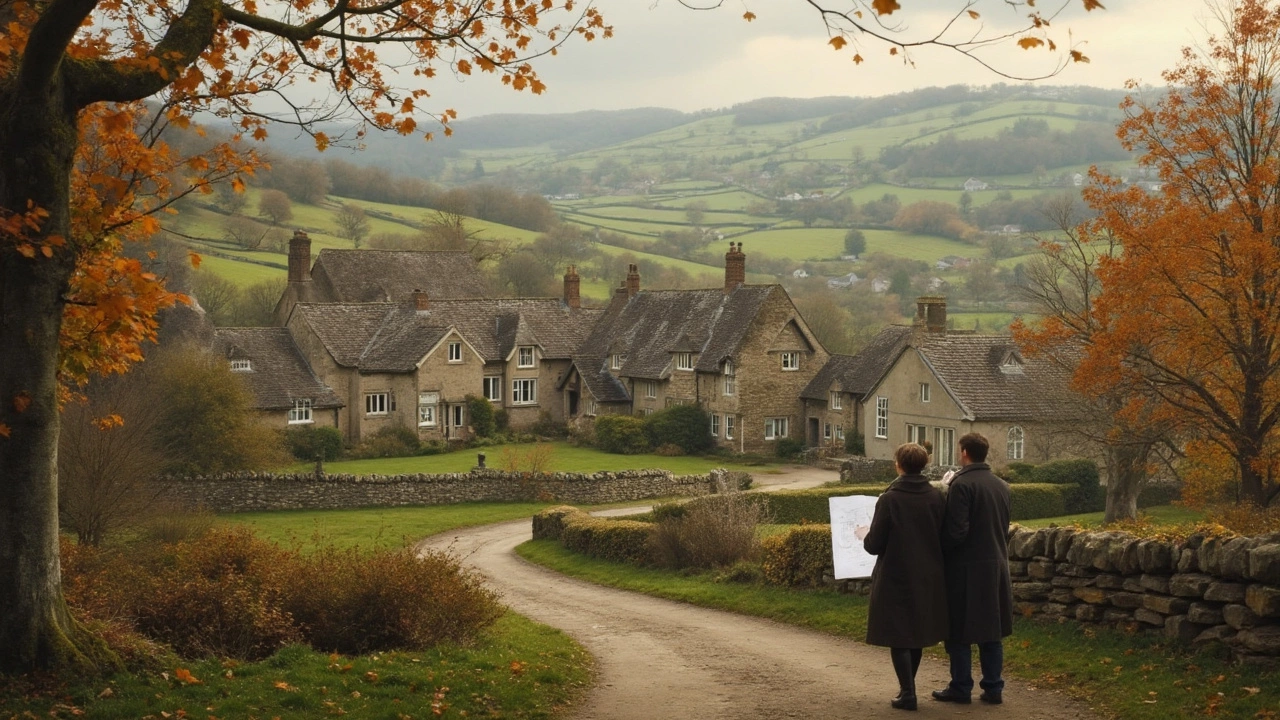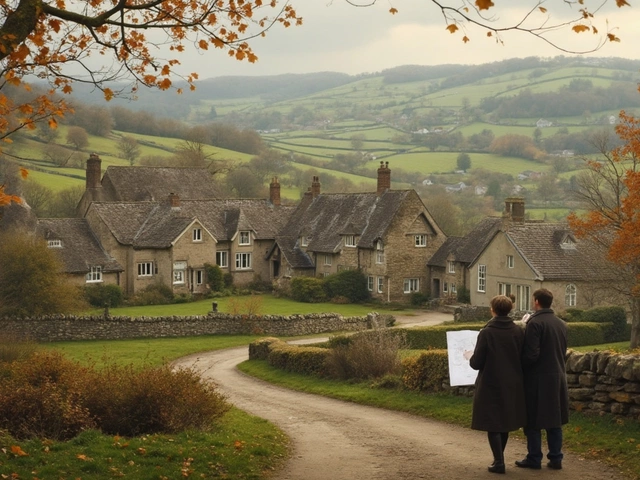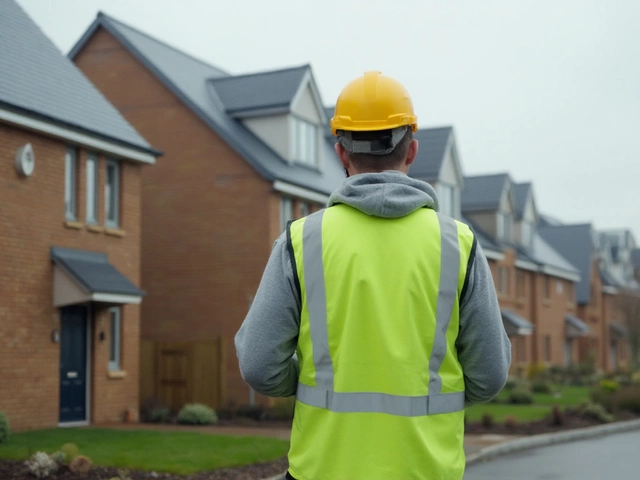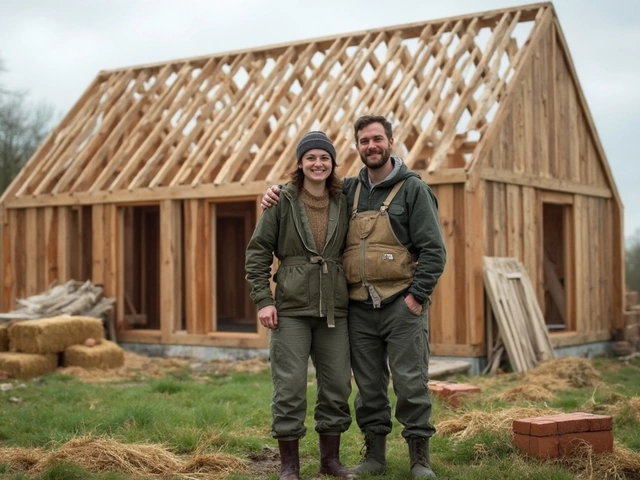Is Building Your Own Home Now More Cost-Effective Than Buying?

Have you noticed how unpredictable the housing market has become? It's like trying to predict the weather in Auckland—always keeping you on your toes. Anyway, whether you're dreaming of custom curtains for your new lounge or just looking for a place to call your own, deciding between building or buying a house is no small choice.
How do you know what's more cost-effective right now—laying bricks or signing papers? The nitty-gritty comes down to market conditions, land prices, and your own patience. Not to mention, the experience might just test how well you handle stress.
Here's a hack: compare the local market's average home prices to the building quotes you receive. If they’re neck-and-neck, consider whether you prefer the hassle of a building project or the ease of a ready-made home. Also, don't forget those surprise expenses. They love to show up unannounced when you're in the middle of a build.
- Current Market Overview
- Breaking Down Costs
- Materials and Labor
- Location and Land
- Timing and Future Proofing
- Getting the Best Deal
Current Market Overview
If there's one thing that's keeping folks up at night lately, it's the state of the housing market. Prices in the real estate world often seem like they're on a never-ending rollercoaster. One minute they're sky-high, and the next, they plummet. No wonder deciding between new builds and existing homes can feel like picking between a rock and a hard place.
First things first, let's talk numbers. In recent years, the national average house price in New Zealand has seen significant shifts. As of the latest data, the average price sits around NZD 900,000. This might sound shocking, but what's wilder is how much prices vary by region. For instance, in Auckland, you're looking at over NZD 1,000,000, while in smaller towns, it's significantly less.
This year, there's also been a buzz about construction costs rising faster than the latest TikTok trend. Supply chain issues and labor shortages have pushed up costs for materials and labor. Yet, some still argue that home construction offers a better long-term investment, thanks to energy efficiencies and custom options.
Interest Rates and Mortgages
Interest rates are another piece of this puzzle. The Reserve Bank has kept us on our toes with fluctuating rates. For those keen on a building adventure, there might be some silver lining here—construction loans often have different terms than traditional home loans, potentially giving more flexibility.
The question remains whether soaring real estate prices or the unpredictable costs of home construction make for a safer bet right now. But one thing's clear: understanding the market's ebb and flow is crucial before making the leap.
Population Growth and Demand
Population growth is another factor that's impacting market dynamics. With more people setting up camp in urban areas, demand for housing has skyrocketed. This directly impacts both the availability and price of materials and labor for new builds.
| Region | Average House Price (NZD) |
|---|---|
| Auckland | 1,000,000+ |
| Wellington | 800,000 |
| Christchurch | 650,000 |
So, what's the takeaway? Look closely at regional prices, interest rates, and your long-term goals. Whether you're buying or building, knowing your market is half the battle.
Breaking Down Costs
When it comes to comparing costs, it’s all about the details. Both home construction and buying an existing house come with their own set of expenses. Let's dig into what you'll be spending your hard-earned cash on.
Construction Costs
Building a new house sounds exciting, but the costs can add up fast. Think of it as piecing together a giant, expensive puzzle. Here's what you need to keep in mind:
- Design and Permit Fees: Getting the design and necessary permits can set you back a fair bit.
- Materials: Prices for lumber have been jumping around like a kangaroo lately, along with concrete and steel.
- Labour: You'll need skilled laborers, and they don't come cheap. Think electricians, plumbers, and builders.
- Extras: Landscaping, driveways, and fencing are the often-forgotten finishing touches.
Buying Costs
On the flip side, picking an already-built house means you’ll be dealing with a different set of expenses:
- Market Price: This is your starting point, and let’s face it, it's quite influenced by the neighborhood.
- Inspections: Very important to ensure you’re not buying a money pit.
- Closing Costs: Think legal fees, title insurance, and transaction fees.
- Renovations: Unless you're super lucky, you might need to modernize or fix things up.
Crunching The Numbers
Ultimately, whether it's cheaper to build or buy depends on where you are and what you want. Historically, building was a lot more budget-friendly, but recent swings in material and labor costs have reset the scales. Still, if the idea of customizing every knob and switch appeals to you, that might be worth any extra costs.
Also consider this: According to a recent industry survey, average building costs can range from NZD 2,500 to 3,000 per square meter depending on location and finishes. On the flip side, buying an existing place might land you around NZD 1,000,000 in the same area, give or take.
Keep these figures in mind when making your choice. The best decision is to weigh up the figures against your desire for customization and your hassle tolerance levels.
Materials and Labor
When diving into the world of home construction, the first thing that'll catch your eye is the skyrocketing price of materials. No joke, last year timber prices went through the roof, and it wasn’t just a one-off. Managing costs for materials is like playing dodgeball; you need quick reflexes and a bit of luck.
Materials are the bread and butter of any new build. Timber, bricks, concrete – you name it, they all have their own markets that fluctuate. Keep an eye on these price shifts, because what you budgeted six months ago might have doubled by the time you're building. Check local suppliers, sourcing deals when supply is high.
- Timber: Extremely volatile in recent years. Look for alternatives or bulk buying opportunities during price dips.
- Bricks and mortar: Stable, but consider extras like delivery costs and potential delays impacting your timeline.
- Concrete: A must for any solid foundation, prices tend to be more stable but always double-check.
And let's not forget the labor costs. Skilled builders are like gold dust. With a shortage of tradies in New Zealand, expect to pay top dollar. Also, booking them in advance is crucial – you're not the only one trying to finish a project before the next unexpected outbreak or regulatory change.
Here's a hot tip: hire young talent alongside veteran builders. They might not have the years of experience but are often faster and eager to impress, striking a balanced team.
For those really wanting a snapshot of costs, check this around October last year:
| Material | Average Price Increase |
|---|---|
| Timber | 40% |
| Steel | 25% |
The bottom line? Keep a pulse on the market and be ready to adapt. Flexibility with materials and smart investments in labor can really tip the scales in your favor.

Location and Land
When it comes to building your dream home, where you choose to plant roots makes a massive difference, not just to your lifestyle but also to your wallet. Location is everything. Want to build in a bustling area with all the amenities at your doorstep? That's going to cost you more. But if you're okay with a longer commute, you might snag a bargain further out.
Let's chat about land prices. They've been on a rollercoaster, and like any ride, timing your jump is key. For example, outside urban centers, like in the outskirts of Auckland or Hamilton, land is generally cheaper. You might score a bigger plot but brace yourself for fewer local amenities.
Urban vs. Rural
Here's the scoop: urban areas might offer smaller parcels at higher prices due to demand, but they come with perks like proximity to work, schools, and entertainment. On the flip side, rural locations offer more space and serenity but might lack infrastructure like public transport and high-speed internet.
Don't Forget Zoning Laws
Zoning laws—those pesky rules that determine what can be built where. Before you get all excited, check what's permissible on your chosen plot. If you're eyeing a beachside retreat, ensure it's not in a zone vulnerable to erosion or flooding.
The Hidden Costs
Watch out for hidden costs that sneak up when buying land: soil testing, clearing expenses, and hooking up utilities. Utilities, you ask? Yep, ensuring power, water, and internet reach your slice of paradise is crucial.
Do you have your heart set on a specific area? Get cozy with a local real estate agent—they know the lay of the land, literally. Plus, they might even give you a heads-up on future developments that could affect your home's value.
Get Real About Resale
Sure, you might build your forever home, but stay realistic about resale value. Areas with schools and transport links often see better appreciation, boosting the return on your investment if you ever choose to sell.
Timing and Future Proofing
Timing can make or break your building project. The biggest question is: are you ready for the patience test? Building a new home isn't instant coffee. It takes time, from securing permits to the final coat of paint. So, you need to be ready for the ups and downs. That's why considering current real estate and construction trends is crucial. If the market's cooling off, it could be the perfect moment to snag better deals on land or labor.
Another thing to think about is future proofing your home. How do you make sure your house stands the test of time and won't outdate itself in a decade? Think energy-efficient systems, flexible spaces for working from home, and sustainable materials. Not only do these choices potentially save cash in the long run, but they can also bump up your home's value when you decide to sell.
When's the Right Time?
If you're pondering over timing, some stats might help. For example, construction tends to slow down during unpredictable seasons, like winter, leading to potential cost savings. You might catch a good deal on materials and labor if you're flexible with your start date.
Thinking Ahead: Future-Proof Tricks
- Energy Efficiency: Opt for solar panels or LED lighting to decrease utility bills.
- Smart Home Tech: Set up automation systems for security and convenience.
- Multi-use Spaces: Design rooms that can shift from a play area today to a home office tomorrow.
- Sustainable Materials: Use bamboo or recycled steel to boost eco-friendliness and durability.
New builds aren't just about creating something fresh—it’s about being smart about how it stands up to time. So, while you can't always predict market swings, you can lay solid foundations for future savings and comfort.
Getting the Best Deal
Alright, let's talk about the nitty-gritty of snagging the best deal when considering new builds. The world of real estate isn't always kind, but with some clever tactics, you just might find yourself twirling keys sooner than you'd think.
Shop Around for Quotes
You wouldn't buy the first car you see, so why settle for the first construction quote? Get multiple estimates from different builders. This gives you a better idea of the current costs and what different companies offer. Don't be shy about negotiating – there's often some wiggle room in those prices.
Consider Supply Chain Impact
One thing that's thrown a wrench into home construction is the global supply chain. Post-2023, we've seen a more stable flow of materials compared to the chaotic shipping delays of earlier years. Still, prices on key materials like lumber and steel vary. Keep an eye on these trends, as buying in bulk when prices dip can yield significant savings.
Government Incentives and Grants
There's often free money up for grabs, especially for first-time builders. Government incentives or grants for sustainable buildings are available, check them out. These can cover a chunk of your real estate project, but they require paperwork. So, get comfortable with a bit of bureaucracy.
Timing the Purchase
Buying land or starting a build when market demand is low can also result in better pricing. Typically, winter months are slower for construction, meaning more availability and sometimes better deals from builders eager to fill gaps in their schedule.
Choosing the Right Builder
Use online reviews and personal recommendations to find reputable builders. A lower quote might tempt you, but ensure the quality and reliability aren’t compromised. Poor construction costs much more in the long run.
| Factor | Expected Saving (%) |
|---|---|
| Bulk Purchasing Materials | 5-10% |
| Government Grants | Up to 25% |
| Seasonal Timing of Purchase | 5-15% |
Embarking on a home construction project requires a clear plan and open mind. By being strategic and proactive, you can turn the typically stressful venture of building a home into a rewarding journey that’s both affordable and fulfilling.


